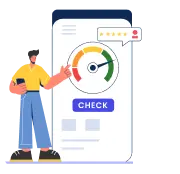Most of us try to repay loans or EMI dues in time to not let it impact our credit score negatively. However, sometimes making timely payments may not be possible due to one reason or the other. This can negatively impact your credit score and make it difficult to get your loans approved in the future.
But if you approach your lender, they might offer you to get into a settlement where your bank agrees to accept part payment of the loan and close the loan account. Also, you might be given extra time to repay the mitigated loan amount. Though it may look like a lucrative option to you, such a settlement can unsettle your credit history.


